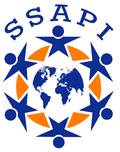
ERASMUS
Testimonials of Incomings and Outgoings
ERASMUS MUNDUS has been a mobility program of the EU providing financial support for the exchange with and the development of third party partners. It was coordinated by EACEA. LogDynamics was partner in three ERASMUS MUNDUS projects: cLINK, FUSION and gLINK. These projects were offering undergraduate and master students, doctoral and post-doctoral research fellows, as well as academic and administrative staff the chance to gain valuable experience, knowledge and establish networking contacts in higher education institutions (HEI) of Asia and Europe. The above mentioned ERASMUS MUNDUS projects contribute to the International Conference on Software, Knowledge, Information Management and Applications (SKIMA) on a regular base. The collaborative framework was running several ERASMUS MUNDUS projects. Please, notice the comment of Bremeninvest about the value of this kind of international exchange.
Please, listen to a junior researcher of cLINK who stayed with LogDynamics at the University of Bremen for 10 months, to a German student who stayed with FUSION for 4 months in China, to an academic staff from Asia who stayed in Bremen for a month and returned again as guest lecturer of LogDynamics here, and to an outgoing lecturer. All of them are now in a position and on a different place.Statement of an Incoming Student
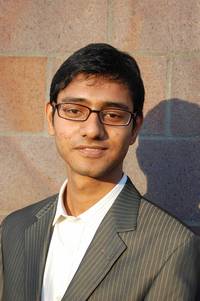
Debkalpa Goswami from India,
Jadavpur University, Production Engineering
Bachelor Researcher with an individual cLINK project: “Optimizing Job Dispatching in a complex Semiconductor Factory” (now here)
What was your biggest fear before coming to Germany?
I thought that people wouldn’t speak English, or wouldn’t understand me. But the truth is, if you go anywhere, you will find at least one person, if not more, who can speak English. And Bremen is so organized, even if the signs are in German, you will never get lost!
What was the biggest challenge during your stay in Bremen?
During the initial few days, language was the biggest challenge, but the intensive German course was really useful and helped overcome this. Within a couple of weeks, I could speak/understand basic German to get myself around supermarkets.
As I come from India, mostly a tropical country, I am not used to extreme cold weather. So, during the first few weeks of winter, I felt a bit uncomfortable. But this was a minor hurdle, and I quickly became acclimatized. Most importantly, all houses, offices and modes of transport in Bremen are centrally heated.
What did you like most (scientifically as well as personally) at LogDynamics?
What really opened my eyes was the fact that even an undergraduate student (as me) is allowed a lot of freedom to conduct independent research. I had my own office, as well as access to all advanced facilities at the research institute round the clock (even on weekends).
On a personal level, I felt that German people are very welcoming, friendly and helpful. I was also fortunate enough to visit a few other cities in Germany, Spain, Italy, France and Denmark, and learn a lot about European history and culture. This, I feel, has made me a more complete human being.
How has the LogDynamics team and the Universität Bremen helped you settle in?
When I first came to Germany, my flight got delayed for one whole day, but even then, when I arrived in Bremen I still found someone waiting to pick me up from the airport, to show me around the city, take me to the International Office get my student ID and get settled into my little studio apartment. This is not the type of treatment you get just anywhere.
All I can say is that everyone (special mention: the local cLink coordinator, the team of the International Office and my supervisor) is extremely helpful and will assist you in every way they can, to make your stay as comfortable and academically fruitful as possible.
How does getting involved with cLINK help advance your professional career?
If you ask some people in India, they would say that I’m wasting a year that I could finish my undergrad instead of traveling. But what they don’t see is that this is actually helping me advance and in being recognized on a more international level. This is a unique experience that is guaranteed to put me slightly ahead of everyone else.
Any recommendation for the next ERASMUS MUNDUS fellows of the Universität Bremen?
September is the best time to arrive in Bremen. Semesters begin in October. So, arriving slightly earlier enables you to get your administrative work done quickly. Also, the weather is very comfortable during that period, and it is easier for people coming from warmer countries to get settled in.
Feedback to the main cLINK coordinators:
I thank, from the bottom of my heart, the people who envisioned cLINK. This experience gave my career a new dimension and opened my eyes to the world. I hope they will keep such projects going in future and provide more students with the opportunity.
Feedback to my supervisor:
I was extremely fortunate to have Torsten as my supervisor. Busy as he is, he devoted a lot of time to supervise me, for which I am indebted to him. It was the perfect mix of supervision and granting me independence. The relationship was more senior colleague-junior colleague than advisor-student, and we developed a very good coordination between ourselves in working towards a common goal. He was also very accessible. It is impossible to describe here in a few words how much I learnt from him. I hope that we can carry on our fruitful collaboration into the future.
Impressions of a Local Supervisor
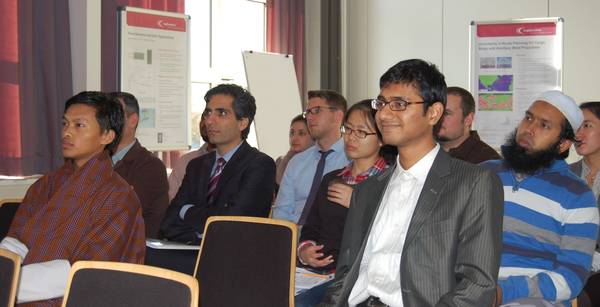
- Debkalpa, further cLINK guests, and doctoral candidates at the Interdisciplinary Research Colloquium of the IGS
Statement of an Outgoing Student
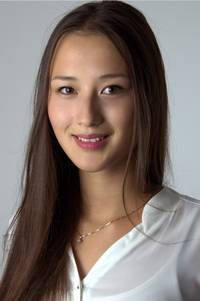
Lucy Juliane Schott, University of Bremen, Germany
Bachelor student of Production Engineering
stayed at the Zhongyuan University of Technology, China
What was your biggest fear before going abroad?
I was afraid, I couldn’t follow the lectures at the university. It is still complicated sometimes, but my Chinese has improved a lot recently.
What would you say is the biggest difference between Bremen and your host country?
There are many differences, such as the traffic, the food and the very high density of population. Zhengzhou has a population of 9 million people, so there are so many high-‐rise buildings. Furthermore, here are so many cars and at some crossroads there aren’t any traffic lights, so there are always traffic jams. Chinese people always eat hot food, mostly soup, noodles and vegetables with rice.
How has your home university and the LogDynamics team helped you to prepare your mobility?
They helped me a lot in exchange-‐questions. Mrs Dr. Rügge and her team are very organized, warm-‐ hearted, supportive and made me feel very comfortable.
How has the host university helped to settle in?
They welcomed me with open arms. After they picked me up from the airport, they invited me to a welcome-‐dinner with all the teachers. My supervisor was there as well, she takes care of me very well and the first days she showed me around the city. They all were very hospitable, friendly and helpful.
What would you say you like most about going abroad as a FUSION researcher/student?
It is hard to say what I like the most because it is such a nice overall experience. I see such beautiful places and I meet lots of open-‐minded people who are interested in getting to know my culture and me. Furthermore, I now know how a Chinese University works and how the students are learning. I also improved my Chinese language skills. Thanks to all who supported me, especially for Dr. Ingrid Rügge, Prof. Wang Dongyun and Dr. Wang Aihui.
How does getting involved with international exchange help advance your professional career?
At this moment it is difficult to estimate. I improved my Chinese language skills which is very important for me. This exchange semester is an additional qualification and I hope it will help me in my future. Maybe I will work in a business with Chinese partnership.
Statement of an Incoming Lecturer
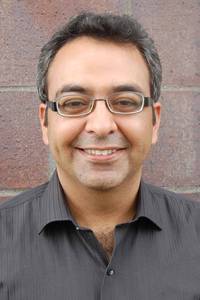
Dr. Mujtaba Hassan Agha, Pakistan
Mohammad Ali Jinnah University Islamabad
Associate Professor in Faculty of Engineering
Teacher's training of the cLINK project
What did you like most (scientifically as well as personally) about your stay in Germany?
On academic level, I enjoyed the interaction with various faculty members who discussed in detail their teaching methodologies, curriculum development and research interests. The most impressive aspect or source of learning was the examination system (particularly the gaming lab), where emphasis is not placed on reproduction of problem solving ability in a tense examination environment but on experience based learning of the students. On a personal level, I loved the ambience and somewhat more relaxed outlook on life in Germany. I especially liked the cafes and restaurants near the river Weser which divides the new and old city of Bremen.
What would you say is the biggest difference between Bremen and your home country?
I would like to point out two big differences: relaxed commute to work and the weather. The public transport system (both tram and bus service) in Bremen is excellent. The connectivity to different parts of the city and punctuality of public transport means that reaching any place in Bremen is not difficult.
How has the LogDynamics team at Universität Bremen helped you settle in?
An activity that I found interesting was the research group (working under Dr. Becker and Dr. Pannek) going to lunch together at 12:30 at University Cafeteria (MENSA). Joining the research group for lunch is a good informal way of helping foreign researchers / guests settling in to the new environment.
How does getting involved with the IGS and the other ERASMUS MUNDUS fellows help advance your professional career?
Getting involved with cLINK mobility has allowed me to interact and exchange ideas with fellow academics at University of Bremen. The discipline, professionalism and dedication of Faculty and staff members of University of Bremen is one of key learning outcomes from this mobility. Moreover, the cLINK mobility allowed me to establish networking contacts at LogDynamics, which will hopefully lead to more knowledge sharing and collaborative research activities in the future.
Any hints for other ERASMUS MUNDUS applicants?
The only problem that I encountered during my cLINK mobility was finding a suitable accommodation. This is perhaps more relevant for participants who will be staying in Bremen for short time periods. My suggestion to them would be to start making arrangements for an accommodation well in advance and not leave this task too close to your travel dates.
Any feedback to your local (Bremen) cLINK contact?
The overall structure, planning and execution of the “Administrative and Academic Staff” program was excellent at University of Bremen. The whole program was run in a professional manner and all team of LogDynamics in particular were courteous and supportive throughout my stay in Bremen.
Any feedback to the main cLINK coordinator?
Currently the “Administrative and Academic Staff” training is based on single visit, which in my opinion is not sufficient. I would suggest that the frequency of interaction should be increased. An alternative way would be to reduce the duration of stay to fortnight but increase the number of visits to the host organization. This will greatly aid in the “Administrative and Academic Staff” to implement the knowledge attained during training program in their country and parent organizations.
Statement of an Outgoing Lecturer
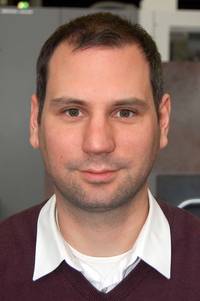
Prof. Dr. Till Becker
University of Bremen, Germany
LogDynamics - Production Systems and Logistic Systems
Teacher's training of the FUSION project
stayed at the Faculty of Engineering, Capital University of Science &
Technology (CUST), Islamabad, Pakistan
What did you like most (scientifically as well as personally) about your stay in Asia?
The best experience in Pakistan was the kind hospitality of my hosts and everyone else I met. Everybody took good care of me and was dedicated to make my stay as convenient and inspiring as possible. As Pakistan is currently not in the focus of western tourists and travelers, there was little information available for me about how daily life in Islamabad would be. I have enjoyed every day of my stay and I am looking forward to return to Islamabad.
What would you say is the biggest difference between your host country/university and your home county/university?
From my perspective, there is a huge difference in the speed of development in the society, economy, and the educational system. The university system in Germany is rather considered to be on a mature level, but this stage makes changes and developments happen rather slowly. In contrast, I have experienced a very high level of dynamics in the development of the universities and higher education in Pakistan, which can be felt as a spirit of optimism and progress.
How has the host university helped you to settle in?
My host university and the staff, from department members and faculty to the vice chancellor, gave me support in all areas such as accommodation, transportation, and organization of the trip. The key for a smooth stay abroad is the planning well in advance in cooperation with the hosts.
How does getting involved with international exchange help advance your professional career?
Having experience on an international level and being networked with international scientists is no longer an advantage for a scientific career, it’s a must! Aside from this formal perspective, it is important to gather experience in how to transform a comparably short stay abroad into a success in terms of delivering talks, settings up research plans with new contacts, and getting research work done.
Any hints for other ERASMUS MUNDUS applicants?
First, consider to go to Pakistan, it will be a unique experience. Secondly, plan as much as possible well in advance (accommodation and daily life, research work, schedule for meeting other scientists in your host country, course schedule, etc.).
Any feedback to your local (Asian) FUSION contact?
Thank you for the great time!
Any feedback to the main FUSION coordinator?
Keep up the good work!



